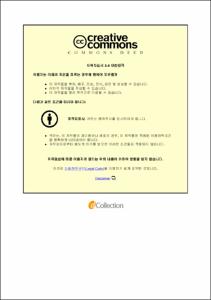Quantitative real-time PCR-based Microbial Source Tracking in the Miho River, Cheongju, South Korea
- Abstract
- Fecal contamination of river systems has become a global concern due to its adverse impact on human health and environment. Consumption of water contaminated with fecal components can lead to diseases such as cholera, diarrhoea, and hepatitis. Fecal pollution can be an outcome of a wide range of sources such as effluents from waste-water treatment plants (WWTP), sewer tank leaks, run-offs from agricultural lands or livestock farms. Therefore, it is essential to identify and track the sources responsible for fecal dissemination. Microbial source tracking methods have evolved immensely in the past few decades. These involve discrimination of the fecal sources based on host-specific genetic markers. In this study, we monitored Miho River which has been reported to be contaminated with fecal matter. Quantitative real-time PCR based microbial source tracking was applied to identify the sources with host-specific microbial markers. Furthermore, Illumina MiSeq sequencing was performed to analyse the taxonomical composition and distribution of microbial communities prior and after rainfall, and their association with fecal pollutants. Effect of rainfall was observed on the river samples along with the physicochemical parameters. Our results identified pig sources to be the highest contributor in fecal pollution, followed by cow. Humans showed relatively low copies/16SrRNA gene copies. Elevated levels of E.coli were observed in post-rainfall samples for all sites, indicating rainfall can facilitate dissemination of coliforms. Relative and differential abundance analysis of microbial communities was performed along with qPCR-based methods, to find and study associations between genera and source-specific pollutants. These insights can be used to develop new biological markers for source tracking.
- Issued Date
- 2024
- Awarded Date
- 2024-02
- Type
- Dissertation
- Alternative Author(s)
- Bhandari Aprajita
- Affiliation
- 제주대학교 대학원
- Department
- 대학원 생명공학부
- Advisor
- Kyung Hwan Boo
- Table Of Contents
- INTRODUCTION 1
METHODS 4
2.1 Site Description 4
2.2 Sample collection and physicochemical analysis 4
2.2 Sample preparation and DNA Extraction 8
2.3 Quantitative real-time PCR 8
2.4 Illumina MiSeq Sequencing 11
2.5 Data analysis 11
RESULTS AND DISCUSSION 13
3.1 In-stream physicochemistry and its association with fecal pollution 13
3.1.1 Physicochemical analysis of river samples 13
3.1.2 Association of physicochemical parameters with fecal pollution 13
3.2 Microbial source tracking through quantitative real-time PCR 15
3.2.1 Quantitative analysis of fecal coliforms in river samples 15
3.2.2 Quantitative analysis of source-specific fecal pollutants in river samples 15
3.2.3 Correlation between physicochemical parameters and source-specific fecal pollutants 19
3.3 Identification of source-specific indicator bacteria through NGS-based methods 20
3.3.1 Microbial Community Analysis through Illumina MiSeq Sequencing 20
3.3.2 Association of microbial communities with source-specific fecal sources 30
3.3.3 Investigating potential host-specific markers for microbial source tracking 31
3.3.3. Effect of rainfall on the distribution of microbial communities 33
CONCLUSION 40
REFERENCES 42
ACKNOWLEDGEMENT 51
- Degree
- Master
- Publisher
- 제주대학교 대학원
- Citation
- 반다리 아프라지타. (2024). Quantitative real-time PCR-based Microbial Source Tracking in the Miho River, Cheongju, South Korea.
- Appears in Collections:
- Faculty of Biotechnology > Molecular Biotechnology
- 파일 목록
-
-
Download
 Quantitative real-time PCR-based Microbial Source Tracking in the Miho River, Cheongju, South Korea.pdf
기타 데이터 / 1.79 MB / Adobe PDF
Quantitative real-time PCR-based Microbial Source Tracking in the Miho River, Cheongju, South Korea.pdf
기타 데이터 / 1.79 MB / Adobe PDF
-
Items in Repository are protected by copyright, with all rights reserved, unless otherwise indicated.